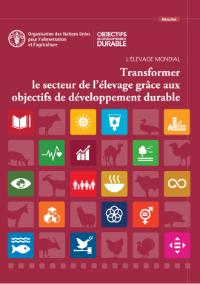Focal point
Location
The Food and Agriculture Organization of the United Nations leads international efforts to defeat hunger. Serving both developed and developing countries, FAO acts as a neutral forum where all nations meet as equals to negotiate agreements and debate policy. FAO is also a source of knowledge and information. We help developing countries and countries in transition modernize and improve agriculture, forestry and fisheries practices and ensure good nutrition for all. Since our founding in 1945, we have focused special attention on developing rural areas, home to 70 percent of the world's poor and hungry people.
Members:
Resources
Displaying 186 - 190 of 5074Guidance on spatial technologies for disaster risk management in aquaculture
This new guide describes the application of spatial technology to improve disaster risk management (DRM) within the aquaculture sector. DRM requires interrelated actions and activities to ensure early warning, prevention, preparedness, response and recovery for a wide range of natural, technological and complex disasters that can impact aquaculture operations and livelihoods.
L’élevage mondial : Transformer le secteur de l’élevage grâce aux objectifs de développement durable – Résumé
Ce document présente un aperçu des principaux messages de la publication "Transformer le secteur de l’élevage grâce aux objectifs de développement durable"
Guidance on spatial technologies for disaster risk management in aquaculture
This new Guide describes the application of spatial technology to improve disaster risk management (DRM) within the aquaculture sector. DRM requires interrelated activities to ensure prevention, preparedness (including early warning), response and recovery for a wide range of natural, technological and complex disasters that can impact aquaculture operations and livelihoods.
Feuille de route pour la mise en oeuvre des recommandations sur l'amélioration du cadre juridique du processus REDD+ à Madagascar
Le cadre juridique est le moyen par lequel s’effectue la transposition des exigences internationales découlant de la Convention-cadre des Nations Unies sur les changements climatiques (CCNUCC) en obligations concrètes et précises pour les pays forestiers, et ce, en fonction de leur situation propre.
Policy analysis of nationally determined contributions (NDC) in Europe and Central Asia
This ‘Policy Analysis of Nationally Determined Contributions in Europe and Central Asia’ follows up on the previous effort to report on implementation of Nationally Determined Contributions in the region. Specifically, this publication compiles and analyzes the most relevant and updated information on policies and regulatory frameworks related to climate change in the region, including information on access to available climate finance to support countries in the implementation of their goals under the Paris Agreement.











